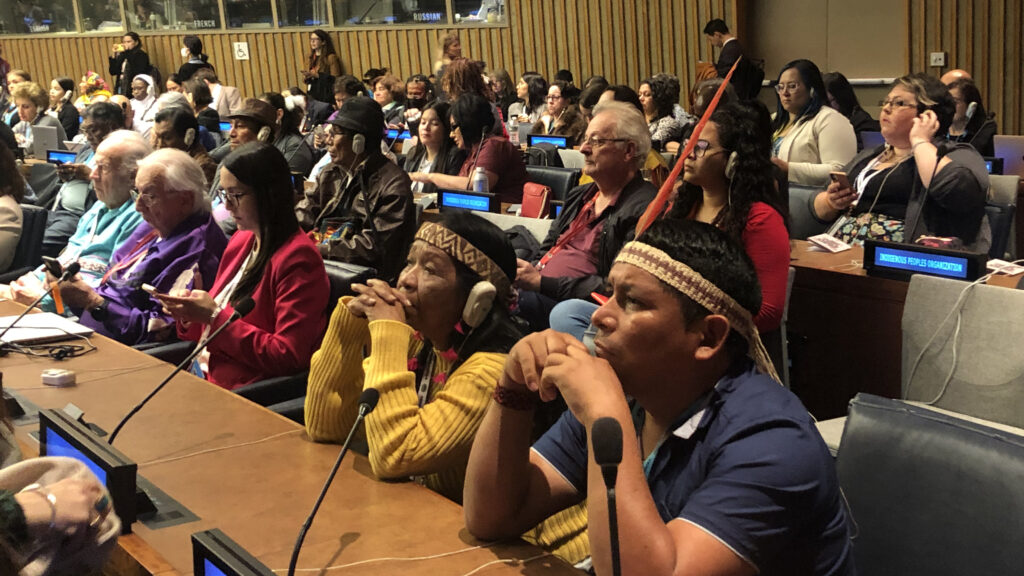Franciscans International participated in the twenty-second session of the Permanent Forum on Indigenous Issues (UNPFII) in New York, focusing on “Indigenous Peoples, human health, planetary and territorial health and climate change: a rights-based approach.” During these two weeks, FI had the opportunity to meet with grassroots and other partners, including the Indigenous Missionary Council (CIMI) and the Pan-Amazonian Ecclesial Network (REPAM), whose delegations included individuals from the Amazon in Brazil, Ecuador, and Bolivia. Many interventions by Indigenous groups focused on the so-called “energy transition” and raised concerns over the extensive mining of Indigenous lands and consequent impacts on the environment and human rights.
Building on its work at the UN in Geneva, FI called for support for the ongoing negotiations toward a legally binding instrument to regulate transnational corporations under international law. FI previously raised the negative impacts of business activities on Indigenous Peoples during a high-level side event at the 20th session of the UNPFII.
FI also shared recommendations with some members of the UNPFII to include language on the right to a clean, healthy and sustainable environment (R2HE) in the final report, following the recognition of this right by the UN General Assembly and the UN Human Rights Council in 2022 and 2021, respectively. Brother Rodrigo Péret OFM also joined FI during meetings on the margins of the forum and made a presentation to the Mining Working Group on extractive issues and on how civil society organizations across the world can work together to counter these trends.
We welcomed the draft report of the UNPFII, which reiterated FI’s recommendations on the following issues:
- On the R2HE: “The right to a clean, healthy and sustainable environment, the right to health and development and the rights of Indigenous Peoples must be seen as interconnected and must be strengthened in intergovernmental negotiations as essential elements of an integrated planetary health governance framework.”
- On a legally binding instrument: “The Permanent Forum welcomes the ongoing international efforts to develop legally binding instruments that ensure accountability and due diligence by transnational companies. The reflection of the United Nations Declaration on the Rights of Indigenous Peoples in such instruments is essential.”
FI will keep monitoring developments on related issues as well as the implementation of key recommendations. We will also continue to advocate for better protection of Indigenous Peoples against human rights abuses caused by business activities. To learn more about FI’s commitment to elevating the voices of Indigenous Peoples, especially in the context of extractive industries, have a look at our article on ‘working toward business accountability at the United Nations’.

